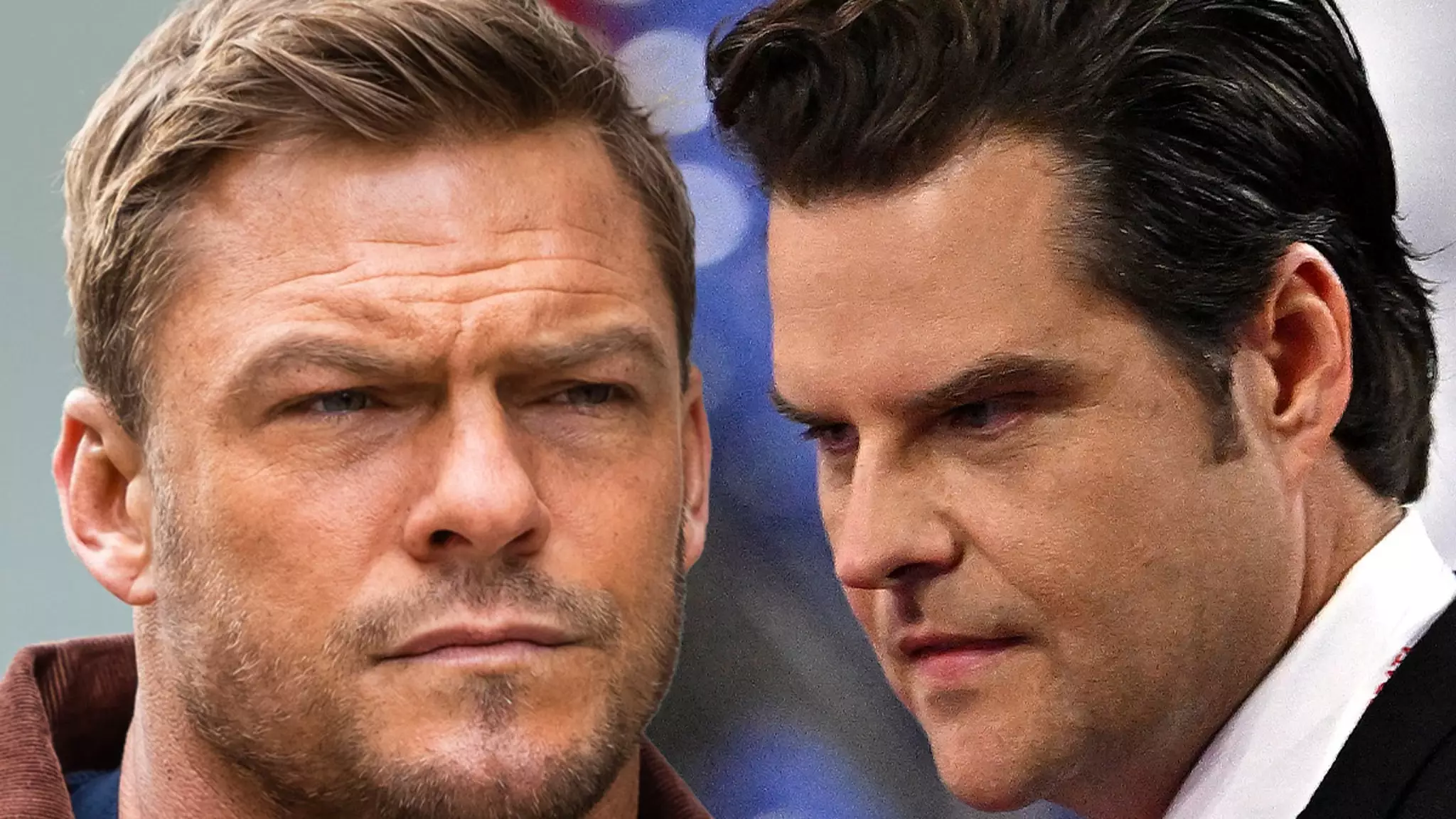In a striking revelation from an interview with GQ, actor Alan Ritchson has openly expressed his disdain for Matt Gaetz, his former classmate from Niceville, Florida. The pairing of these two individuals, who share a childhood connection, underscores a stark contrast in their public personas and moral compasses. With Ritchson labeling Gaetz as “that mother******,” it’s evident that their relationship did not transition into friendship; instead, it has morphed into palpable animosity.
Ritchson’s candid remarks raise eyebrows, as he delves into his disbelief regarding Gaetz’s continued support among constituents in the Florida panhandle. He questions how voters can overlook Gaetz’s troubled past—especially allegations tied to sexual misconduct and shady political maneuvering. For Ritchson, the crux of the issue lies in Gaetz’s alleged façade as a trustworthy leader. Such strong statements betray a broader concern regarding celebrity involvement in politics and its implications for accountability.
While Ritchson’s resentment towards his childhood peer is apparent, it also prompts a reflection on his own political aspirations. He insinuates that entering politics to counter figures like Gaetz crosses his mind, albeit with reservations about his capability to navigate a world rife with duplicity. This admission is fascinating, as it aligns with a growing trend of celebrities stepping into political arenas—a move often met with skepticism.
Ritchson’s self-awareness about his limitations in the political landscape speaks volumes. He recognizes that maintaining authenticity might be challenging when confronted with the inherent manipulation that characterizes political discourse. The question arises: is sincerity incompatible with political success? Ritchson’s candidness unveils a broader societal dilemma—how can honest individuals engage in a system that often rewards the opposite?
Beyond the Ritchson-Gaetz dynamic, this discussion represents a larger narrative regarding the intersection of celebrity, media, and politics. Public figures wield substantial influence over public perception, which can either uphold or undermine democratic processes. Ritchson’s vehement criticism of Gaetz encapsulates a growing frustration among segments of the populace regarding the representatives they elect and their subsequent actions.
Moreover, Ritchson’s foray into other personal subjects during the interview—ranging from drug use to mental health challenges—exemplifies his willingness to be vulnerable. This openness can foster connections with audiences, making his critiques of individuals like Gaetz resonate more deeply. As society navigates complex issues related to governance and ethics, the role of narrative-driven celebrity perspectives becomes increasingly relevant.
As this narrative unfolds, the implications for both Ritchson and Gaetz appear profound. Ritchson firmly resides in the entertainment sphere but makes his opinions known—potentially positioning him as a beacon of alternative thought against figures perceived to be mired in scandal. Conversely, for Gaetz, the storm of criticisms from former classmates and public figures suggests a growing isolation as his transgressions come to light.
Ultimately, this face-off highlights a critical juncture in contemporary dialogue, where personal histories and political realities collide dramatically. Whether Ritchson will actively pursue political involvement or remain a vocal critic remains to be seen, but one thing is certain—his stance is emblematic of a larger cultural introspection that challenges the status quo.

